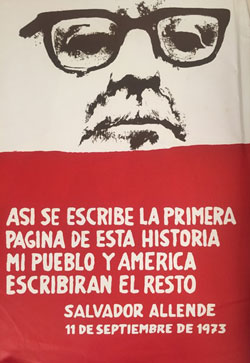Political beliefs are always an intimate subject, especially in an academic setting, but do freedom of speech and individual liberties translate over in the classroom for professors without legal infringements?
University professors enjoy academic freedom in classroom teaching, and it is detailed in their faculty contract, but, “If faculty are expressing political beliefs in their lectures that are not related to their subject matter and are imposed on students without any openness to discussion, students have the right to bring their concerns to the attention of the department chair,” said Dr. Thomas Pearson, Provost and Vice President of Academic Affairs.
Students at the University employ professors to introduce all types of political beliefs in the classroom because it creates openness and a bilateral line of communication.
“I think it is beneficial for students to hear other viewpoints whether it is from peers or professors. Most students are taught what their parents believe in, but there is so much more out there to know,” said Casey Smith, senior psychology major. “It is important to gather all of the information first, and then make a decision on what best suits you. Everyone is entitled to a different opinion and there is no straight ‘right’ or ‘wrong.’”
Pearson said that as indicated in the University Faculty Contract on page seven, “Academic freedom means freedom of teaching and research and of extramural (off-campus) activities… Faculty members are entitled to freedom in the classroom in presenting and discussing their subject. Faculty and instructional staff members must have primary responsibility for selecting instructional materials, defining course content and determining the methods of evaluating student performance in their classes.”
Pearson continued by saying that the contract states, “They should be careful, however, in their teaching not to introduce and dwell upon matter, particularly controversial matter, which has no relation to their subject. Free inquiry includes pertinent controversy.”
The contract also details that faculty should exercise appropriate restraint, attempt to be accurate at all times, show respect for opinions of others, and should avoid creating the impression that they speak for the University.
“I try never to share my personal beliefs because when I was a student I grew irritated and would drift a bit when I thought a professor was trying to indoctrinate me into a particular political mindset,” said Dr. Joseph Patten, Chair of the Political Science and Sociology Department. “A professor’s personal view never had any influence on me. I always enjoyed being in a class when the professor knew how to discuss politics in an objective and non-partisan way,” he continued.
Some students at the University find it interesting to learn about their professor’s beliefs and they encourage an open pathway of communication.
“Personally, I like when a professor gets invested in the class by sharing his or her political beliefs, but not everyone can handle that,” said Jeremy Uccello, junior psychology major.
“It can make students uncomfortable,” Uccello continued. “In one of my classes last year, my professor shared his religious beliefs with the class and this ignited many debates. The same can translate over for political beliefs, especially depending on the student and his or her family beliefs.”


